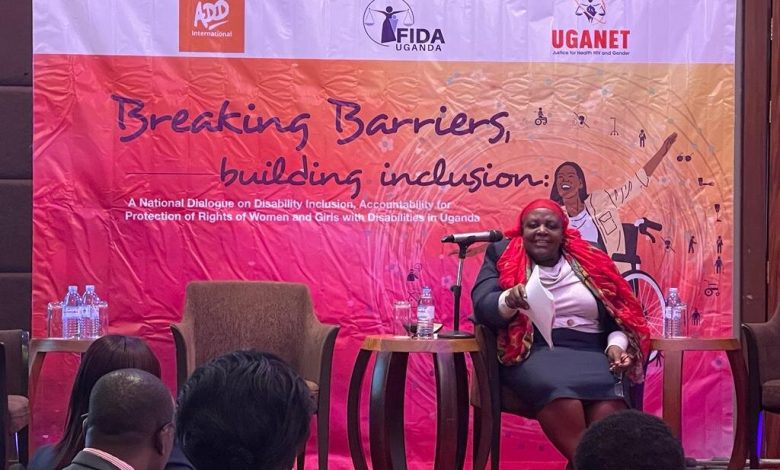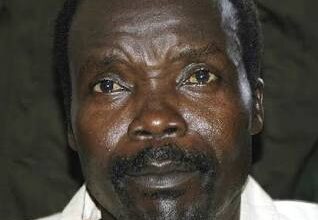Women with disabilities not accessing justice – FIDA report
In her remarks, Hajjat Nalule cautioned parents to avoid isolating their disabled children since it affects their upbringing and well-being.

The Uganda Association of Women Lawyers (FIDA Uganda) in partnership with ADD International and Uganda Network on Law Ethics and HIV/AIDS (UGANET) on Monday held a national dialogue with various stakeholders to break barriers experienced by People with Disabilities (PwDs) and how to build inclusion for them.
The national dialogue which involved the launching of a report by FIDA Uganda was graced by Hajjat Safia Nalule Jjuuko, the Chairperson of Equal Opportunities Commission.
In her remarks, Hajjat Nalule cautioned parents to avoid isolating their disabled children since it affects their upbringing and well-being.
“I became disabled as a toddler. I and my mother would see disabled children homeless on the road. I decided that when I grew up, I would advocate on behalf of PWDs due to the societal neglect I witnessed,” Nalule stated.
She urged responsible entities to implement the existing policies and laws to ensure that affirmative action for gender equality and equity reaches everyone.
“A woman with visual impairment will not be able to see a man who is undressing her, a woman with speech difficulties will not be able to make an alarm when she is in an unsafe situation,” she said.
Adding: “Many Women & girls with disabilities still suffer from Sexual & Gender-Based Violence and have challenges accessing justice.”
The report released at the dialogue reveals that limited or no access to justice is one of the major barriers women with disabilities continue to face in Uganda.
The report on inclusion indicates that 13% of girls with disabilities are being exploited through sexual and gender-based violence and are never accorded justice.
Elizabeth Kemigisha, the Advocacy and Policy Manager at FIDA Uganda, noted that approximately 12.5% of Uganda’s population live with a disability. Many of these are women than men.
She said: “PWDs are more vulnerable to be subjected to GBV and they face additional barriers in seeking redress and accessing justice,”
Activists are now calling upon the government to ensure budget allocation to people with disabilities to enable them to portray their potential in the social and economic development of the country.
According to a research brief of a study on access to justice for Women and Girls with Disabilities (WGWDs) in Uganda in 2022, communication barriers, limited access to legal information and understanding of rights, architectural or physical barriers and legal barriers are among the challenges faced by women and girls with disabilities in accessing justice.
The disability prevalence among women is at 15% and 10% among men. 15% of the disabilities were in urban areas and 12% in rural areas (National Population Census, 2014).
The majority of persons with disabilities are subsistence farmers (73.7%) compared to persons without disabilities (61.6%) (UBOS, 2019).






